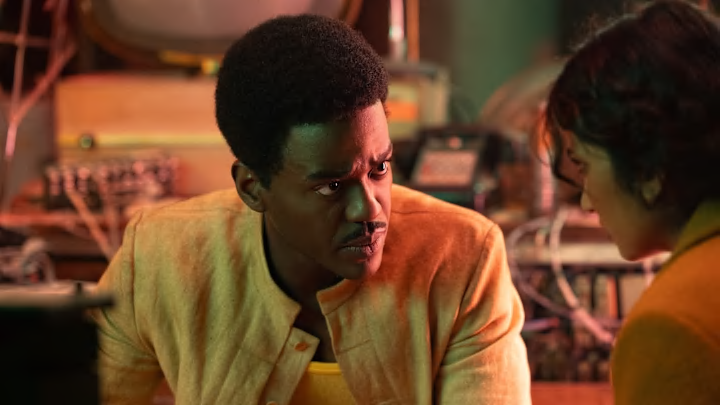Open the comments on any Doctor Who-related post on Facebook, and, besides the trolls predicting cancellation, the main comments are criticism and complaints that Ncuti Gatwa's Doctor cries too much. I'm not on other social media platforms to see the general consensus there, but I thought this line of thought worth discussing.
Crying is new for the Doctor
I can count on one hand the number of times the Doctor cried in the New Who era. Especially with the most well-known Doctors played by David Tennant and Matt Smith each only have one notable time they show sadness through anything more that a solemn face. The Tenth Doctor stands in his TARDIS in shock with tears streaming down his face as he's cut off from confessing his feelings to Rose. The Eleventh Doctor wipes a single, surprising tear from his cheek when he realizes Amy and Rory still set the Christmas dinner table for him.
The events of companion loss, side character death, even their own regeneration don't evoke tears from the Doctor. I think this may be one of the many reasons Ncuti Gatwa as the Fifteenth Doctor stands out so much. In just the first two episodes of season 2, we see him cry over the death of a would-be companion then later in empathy with fans of the show. One online commenter claimed he has cried in thirteen consecutive episodes, though I admit I haven't noticed.
Let's talk about toxic masculinity
While Doctor Who is one of the most progressive shows ever created for its LGBT+ representation, disability inclusion, and handling of societal issues, the problematic elements have not gone unnoticed. Many fans dislike the few offhand comments, companions written for the male gaze, and fetishized queer relationships of the later Moffat era (though he did a bang-up job with Bill, in my opinion). One could even argue that the possessiveness of Mickey and the promiscuity of Captain Jack, not to mention the offscreen issues with their actors, were further symptoms of toxic masculinity.
My sister's first boyfriend got us into the Amy and Rory (he hated Clara) era of Doctor Who, and it wasn't long after they broke up that we began to notice how he had negatively internalized the character of the Doctor. Think about it in this light - a man who does what he wants, is surrounded and celebrated by women, and answers to no one. (Not to mention, a man without negative emotions, except maybe anger, which gets a pass because it's considered a symbol of strength.) From the first episode with Belinda Chandra's introduction, this season has been a departure from that norm, with accountability and feelings felt.
This Doctor is another step forward on his healing journey
The Doctor's bi-regeneration into the Fourteenth and Fifteenth Doctors made a break with his past and allowed the Fourteenth Doctor to semi-retire with found family and slow down to process his feelings and trauma. The Fifteenth Doctor, in comparison, is unburdened with a new beginning. It's part of the reason, I believe, we've seen so much joy and energy from this Doctor. After repressing his emotions for so long, sadness (and I think eventually anger) are part of the spectrum of emotions he can now access. They've always been there, but unsafe to express.
He now has room for empathy, sadness without feeling completely crushed, and care for each and every person his path crosses with, from the Space Babies to Sasha-55. This Doctor is the most emotional one we've seen, and he doesn't cry any more than he laughs, dances, flirts, or is surprised.
Let's ask a better question
I think a more constructive question than just criticizing how often the Fifteenth Doctor cries is to ask if these emotional moments feel earned. Did we care enough about the person he just lost that we would cry too? Was their character development and screen presence strong enough to merit such emotion? Remember, these episodes are only 45 minutes so it's definitely a challenge for the writers to put us in the same headspace as the Doctor.
We can discuss the writing, the acting, and the characterization, but what we shouldn't do is give into the notion that crying somehow makes this Doctor any less worthy than the others.
